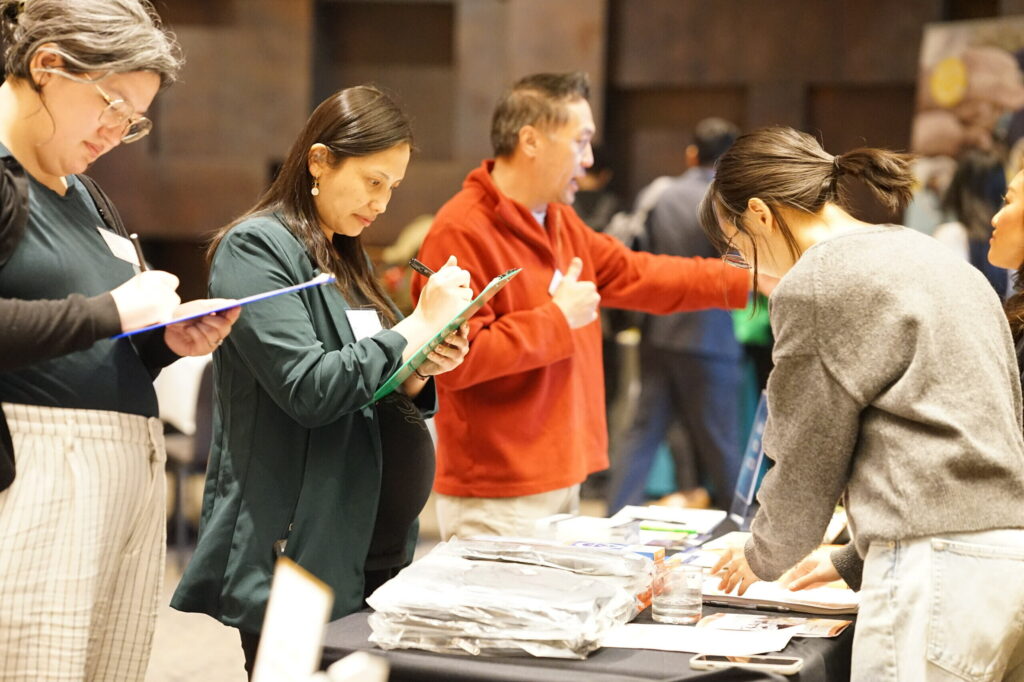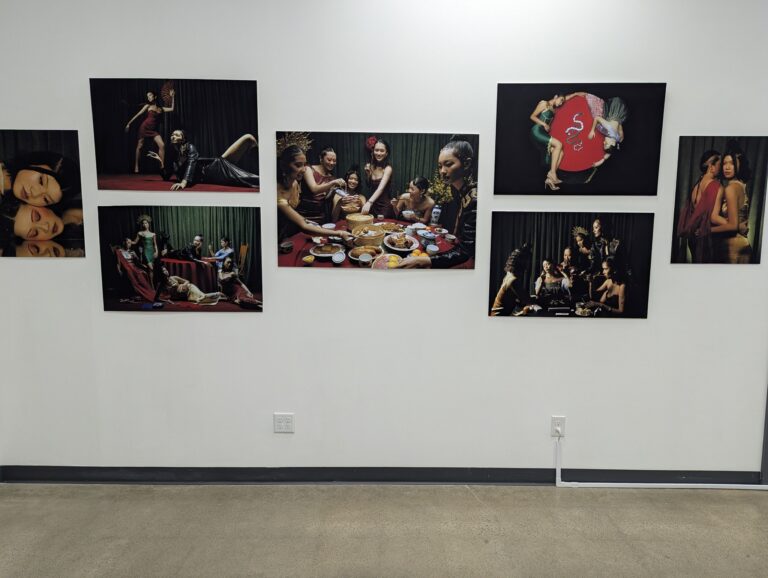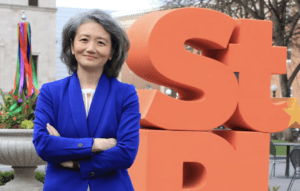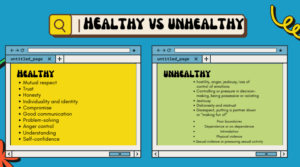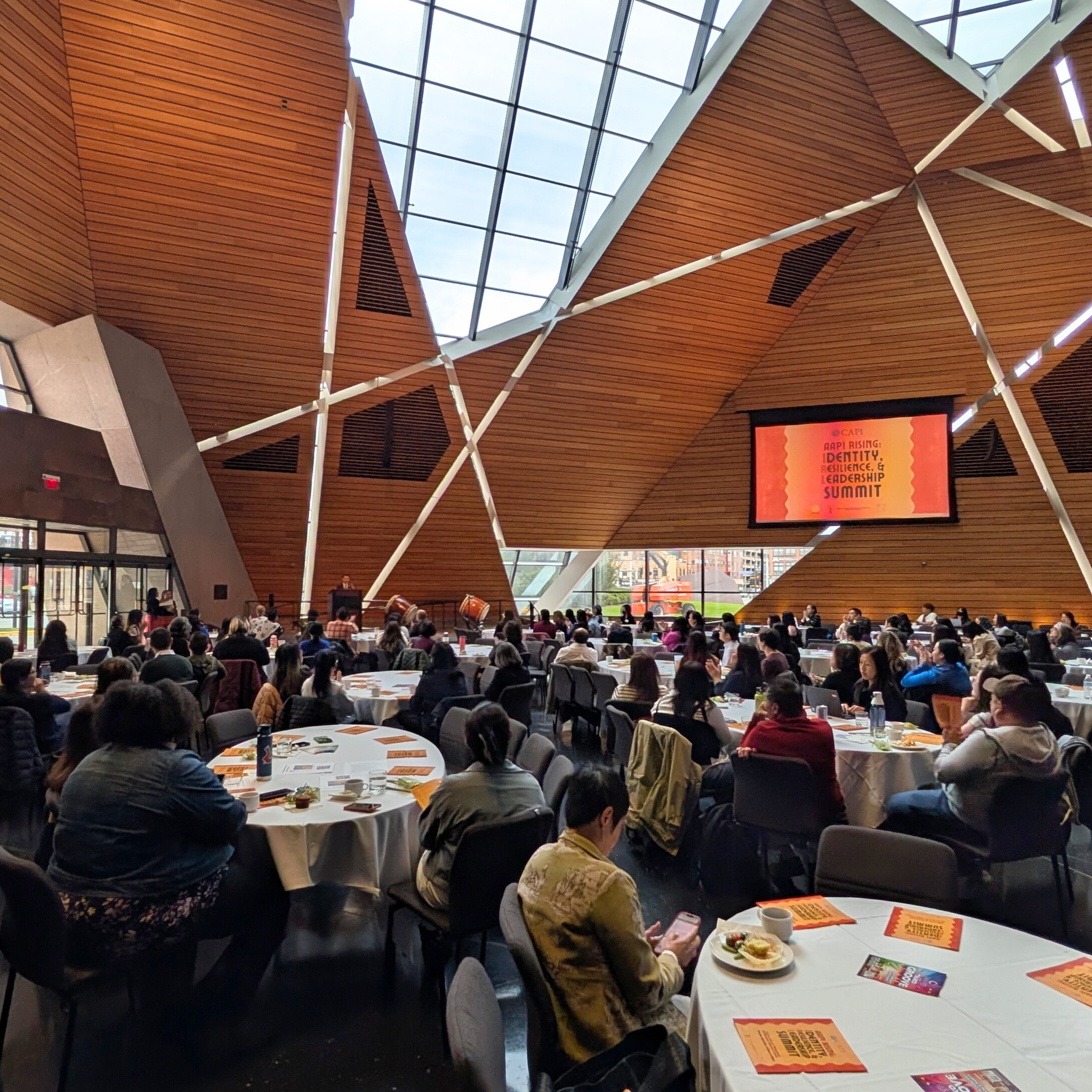 Host by CAPI USA, the first-ever AAPI Rising: Identity, Resilience, & Leadership Summit took place on April 21, 2025, featuring an impressive lineup of speakers and performers. Notable speakers included Sam Hyun, Director of Government Relations for The Asian American Foundation and one of The Boston Globe’s 2021 Bostonians of the Year; Michelle Li, a news anchor who founded The Very Asian Foundation after experiencing racism; Kao Kalia Yang, an award-winning Hmong American author; Dr. Bruce Corrie, an economist specializing in minority businesses; and Christine Chen, Executive Director of Asian Pacific Islander American Vote.
Host by CAPI USA, the first-ever AAPI Rising: Identity, Resilience, & Leadership Summit took place on April 21, 2025, featuring an impressive lineup of speakers and performers. Notable speakers included Sam Hyun, Director of Government Relations for The Asian American Foundation and one of The Boston Globe’s 2021 Bostonians of the Year; Michelle Li, a news anchor who founded The Very Asian Foundation after experiencing racism; Kao Kalia Yang, an award-winning Hmong American author; Dr. Bruce Corrie, an economist specializing in minority businesses; and Christine Chen, Executive Director of Asian Pacific Islander American Vote.
The Summit was further enriched by vibrant cultural performances. TaikoArts Midwest showcased the dynamic art of Japanese drumming, blending music, dance, and martial arts, while the Doan Toma Thien Lion Dance delivered a traditional performance believed to bring good fortune and dispel negative energy. The event drew a full audience and concluded with a reception at Arbeiter Brewing, underscoring the community’s strong commitment to addressing AAPI issues through cultural exchange and collective action.
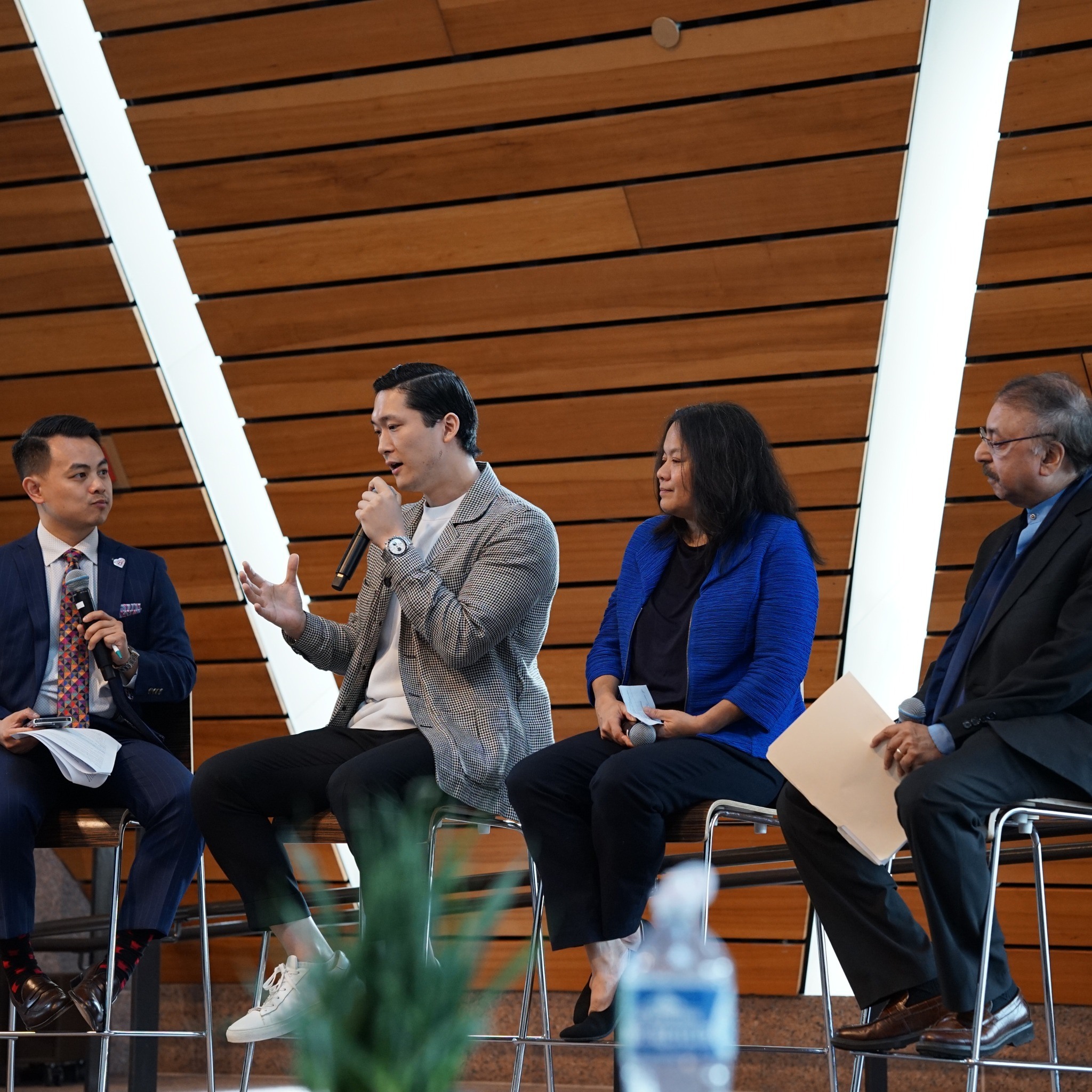 During the Summit, Asian Media Access took the lead on presenting the local effort for the Stop Anti-Asian Hate campaign, in collaboration with Anjuli Cameron and Dasharath Yata, Co-Executive Directors of SEWA-AIFW (Asian Indian Family Wellness). Mr. Yata traced a troubling legacy from the 1882 Chinese Exclusion Act and Japanese internment during World War II to the recent surge in violence linked to COVID-19 rhetoric. He emphasized that today’s anti-Asian sentiment is not an isolated phenomenon but part of a persistent pattern of injustice that demands both recognition and proactive, culturally informed solutions.
During the Summit, Asian Media Access took the lead on presenting the local effort for the Stop Anti-Asian Hate campaign, in collaboration with Anjuli Cameron and Dasharath Yata, Co-Executive Directors of SEWA-AIFW (Asian Indian Family Wellness). Mr. Yata traced a troubling legacy from the 1882 Chinese Exclusion Act and Japanese internment during World War II to the recent surge in violence linked to COVID-19 rhetoric. He emphasized that today’s anti-Asian sentiment is not an isolated phenomenon but part of a persistent pattern of injustice that demands both recognition and proactive, culturally informed solutions.
 Mrs. Cameron supplemented this historical perspective with compelling data from Pew Research Center studies. She revealed that 63% of Asian Americans perceive a rise in violence against their community since the pandemic—a concern shared by significantly fewer members of other racial groups. Additionally, about 21% of Asian Americans reported experiencing racial slurs or jokes in the past year, with the figure climbing to 32% among young Asian adults aged 18–34.
Mrs. Cameron supplemented this historical perspective with compelling data from Pew Research Center studies. She revealed that 63% of Asian Americans perceive a rise in violence against their community since the pandemic—a concern shared by significantly fewer members of other racial groups. Additionally, about 21% of Asian Americans reported experiencing racial slurs or jokes in the past year, with the figure climbing to 32% among young Asian adults aged 18–34.

Following this, Ange Hwang, Executive Director of Asian Media Access, explored strategies to move beyond Western-style protest in countering anti-Asian hate through a cultural intelligence framework rooted in bicultural healthy living principles. Three key approaches were highlighted: “Be Like Water,” which emphasizes adaptability; “Change the Narratives & Frameworks,” calling for a shift in public discourse; and “Cultural Exchange & Education,” which fosters mutual understanding through cultural engagement. The session encouraged active participation, with audience questions touching on pan-Asian inclusivity, supporting youth facing bullying, and facilitating intergenerational dialogue on LGBTQ+ issues.
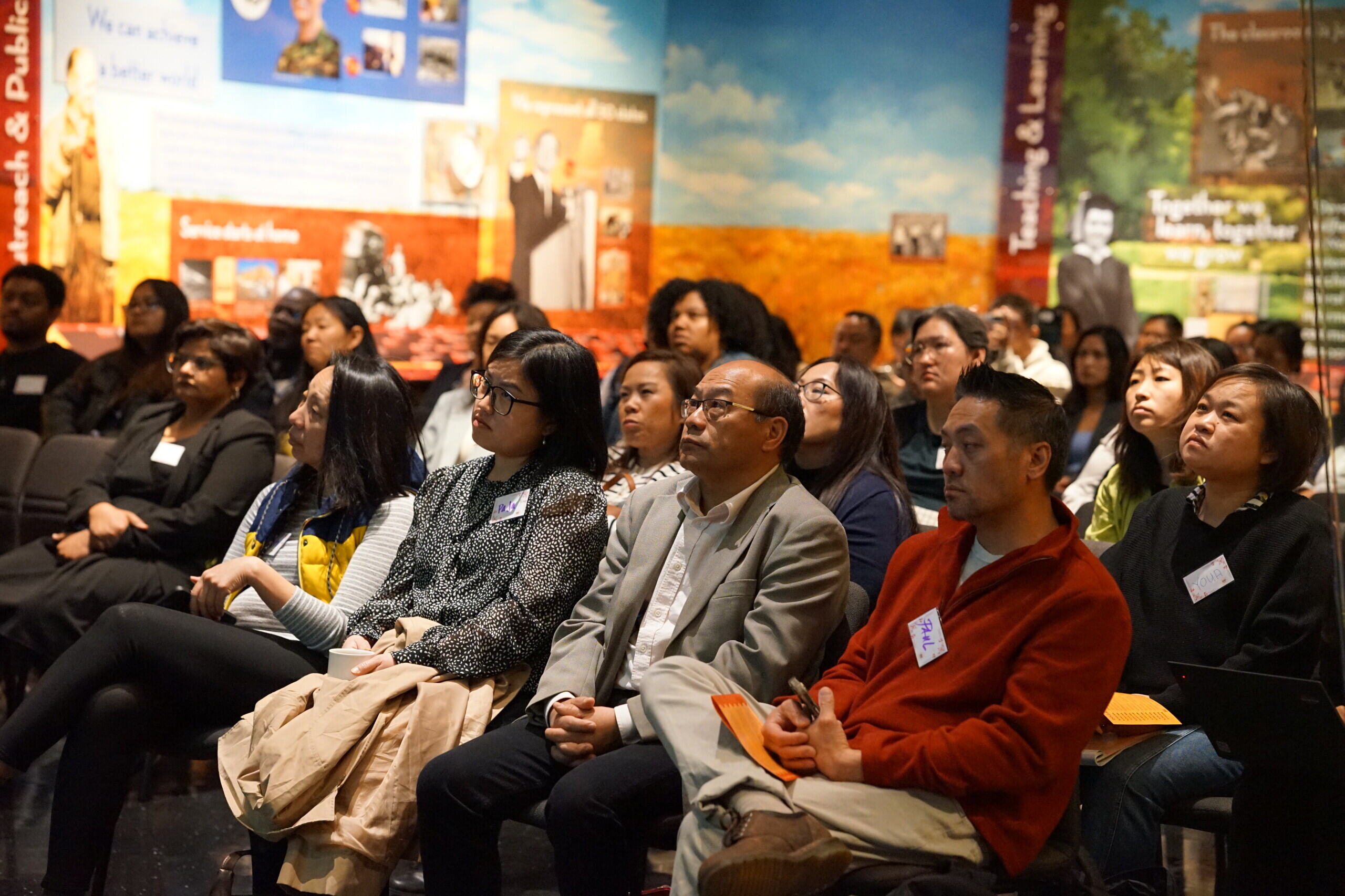 By weaving together statistics, personal narratives, and case studies, the Summit demonstrated how cultural strategies can effectively address anti-Asian hate while honoring the diversity of AAPI experiences. The event not only illuminated ongoing challenges but also reinforced the power of solidarity and cross-cultural collaboration in driving meaningful change.
By weaving together statistics, personal narratives, and case studies, the Summit demonstrated how cultural strategies can effectively address anti-Asian hate while honoring the diversity of AAPI experiences. The event not only illuminated ongoing challenges but also reinforced the power of solidarity and cross-cultural collaboration in driving meaningful change.
Asian Media Access for sure loves to present our “cultural intelligence framework” to other agencies, feel free to connect at amamedia@amamedia.org.
Photo Courtesy: CAPI USA

